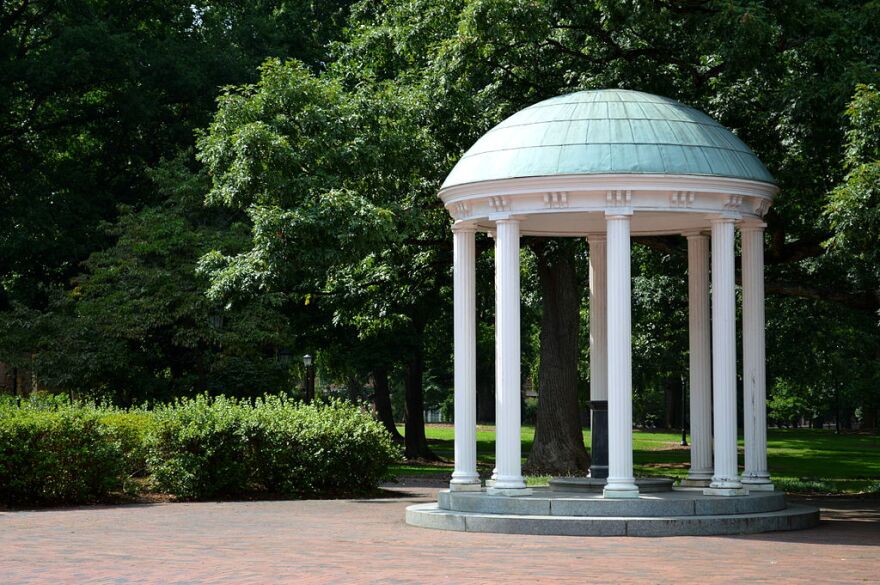The UNC System is conducting a study to quantify its return-on-investment for students and the state to comply with a provision in last year’s state budget.
Kimberly van Noort — UNC System's Senior Vice President for Academic Affairs and Chief Academic Officer — described the study to the UNC Board of Governors Wednesday. She stressed that evaluating the cost and worth of the entire 16-university system is a big undertaking.
“This is, oh, about 1,800 programs that we're talking about,” van Noort said.
The system has hired three consultants — Deloitte, RPK Group and the Burning Glass Institute — to use data on university finances and career outcomes to evaluate university degree programs for their effect on students, the state and the universities as a whole.

The law requires the study’s final report to include an analysis of seven data points:
- number of students in each program
- number of faculty and other staff employed for each program
- the related costs required to operate the degree
- a correlation between the degree of study and the career outcomes and possibilities
- a detailed return-on-investment analysis for each program
- a return-on-investment analysis for state funding expenses
- a return-on-investment analysis for student expenses
Van Noort broke this down into factors impacting students’ financial burden as they pursue and complete degrees.
“We're going to look at initial and lifetime earnings, observed career outcomes, tuition, financial aid and the overall cost burden,” van Noort said.
The study will also measure the public cost of the universities.
“We're going to look at total staff compensation, including faculty and benefits, other related expenses, including overhead,” van Noort said.
She added that the study will also look at student outcomes, saying: “How many degrees are awarded, and how many students are actually impacted by those programs?”
At the root, the study is a cost-benefit analysis. And it will also look at the UNC System's overall benefit to the state.
“Is the supply of talent delivered by the system meeting state labor demand?” van Noort said. “What are the costs of the system, versus the aggregated earnings and impact on state tax revenues?”
Converting the value of a university to a dollar sign
"I have visions of a newspaper article that has an institution and a number, and that will be so damaging to boil something down to a number like that."Anna Spangler Nelson, board member
Board member Anna Spangler Nelson said she worries the value of a university will be reduced to a single number based on its graduates' earnings.
“I have visions of a newspaper article that has an institution and a number, and that will be so damaging to boil something down to a number like that,” Spangler Nelson said. “Any model that's going to use as its return, the net present value of a person's earnings will undervalue a teacher, a government worker, a volunteer, a full time parent, and on and on. All these important people that make our state who we are and what we need.”
Board member Art Pope said he “commends” the project, and also said he agrees with Spangler Nelson’s concerns.
Pope is a businessman, one of the most prolific donors to conservative causes in North Carolina, and a former state budget writer under former Gov. Pat McCrory.
“If on a raw number, a given degree program on a particular campus is poor, the first reaction shouldn’t be to condemn that program or abolish it, but look at what are the costs,” Pope said. “And we can lower the cost side of that, so that the return on investment is better, both for the students and the state.”
The constraint in lowering higher education costs is that the largest expense in a university’s budget is typically the salary of faculty and other state employees.
For example, salary and benefits make up more than half of the total expense side of UNC-Chapel Hill’s new all-funds budget, with services and scholarships coming in as the next highest expenditures.
The study will begin with case studies of N.C. State University, North Carolina A&T State University and UNC-Greensboro, with early results released in August. A final report on all 16 public universities is due November 2023.








